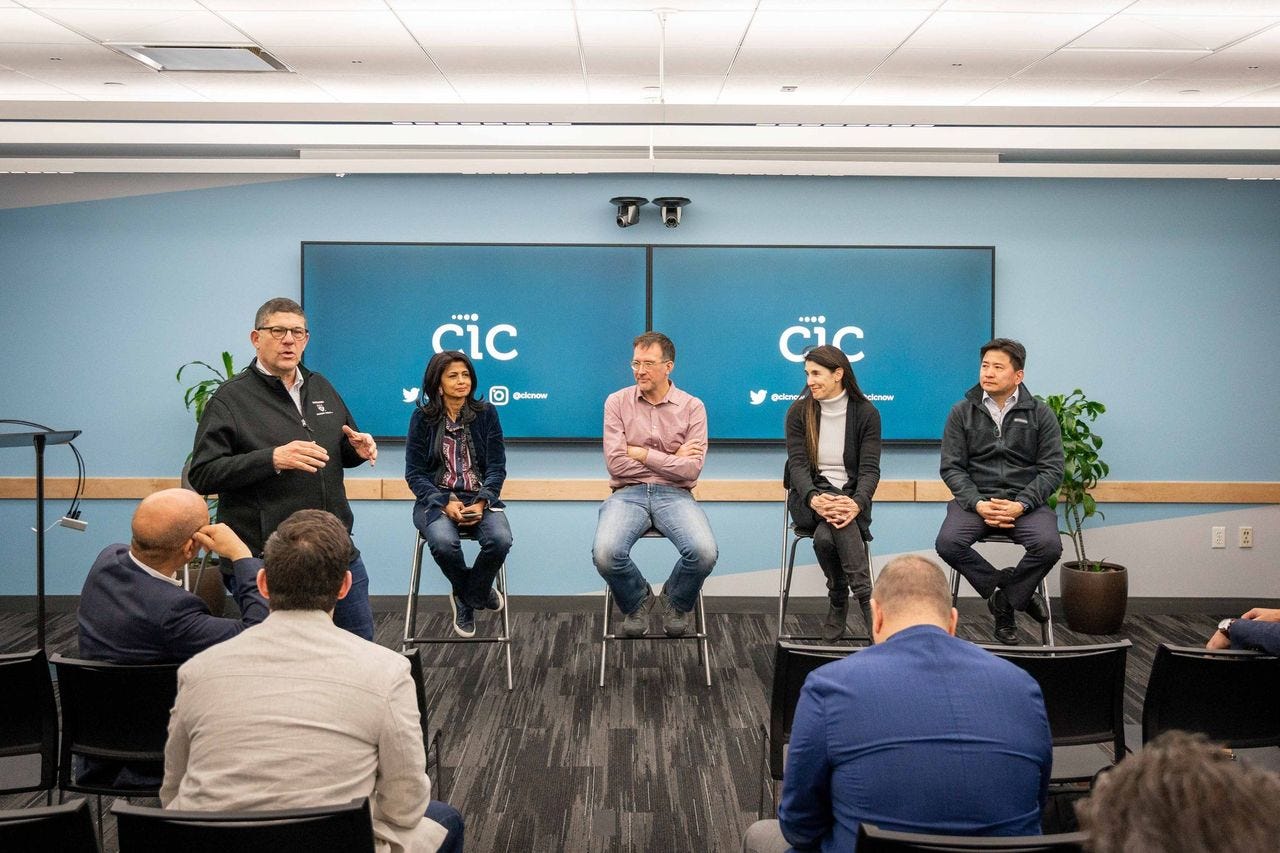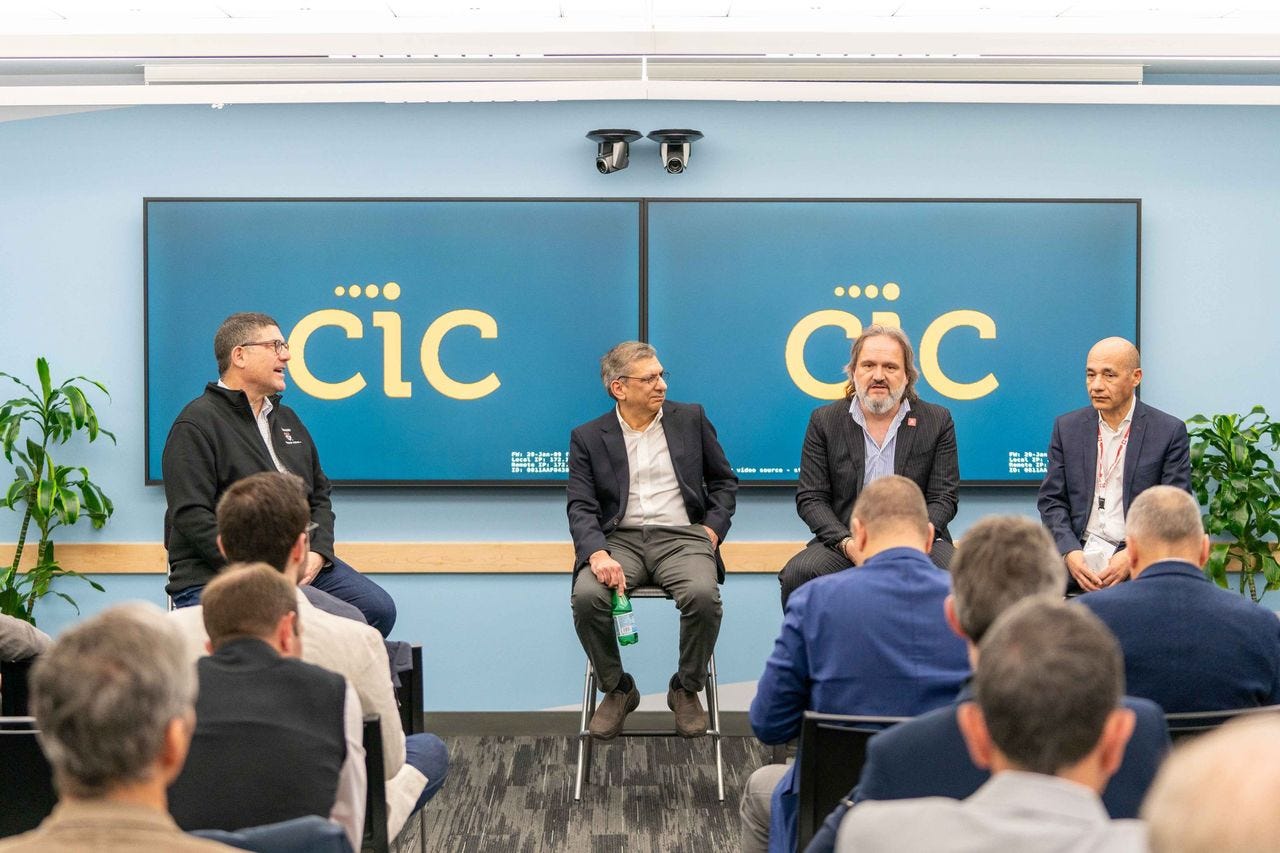On Friday (April 26th), I had the pleasure of moderating two panel discussions at the CIC in Kendall Square for Digital Switzerland. These sessions brought together VCs in one panel and CEOs in another panel, all of whom were thought leaders and innovators, to explore the today’s AI and cybersecurity and startup landscape.
During the panel discussion entitled "The AI Opportunity Landscape," leading venture capitalists shared their insights into the evolving world of AI and its burgeoning business and investment opportunities. The panel featured Bob Mason from Argon Ventures, Hyuk-Jeen Suh of Sky River Ventures, Kerty Levy of Techstars, and Nilanjana Bhowmik from Converge. The panelists covered many topics in a short span of time, including the role of AI in transforming traditional industries through innovative solutions, the characteristics of AI startup founders which, while consistent with those of prior founders, are more demanding with respect to AI technology, and the importance of ethical AI development and investment. Funding is difficult and slow at this time and likely to persist; however, each VC is still selectively doing deals. Together, the VC panelists provided in-depth overview of the AI landscape, reflecting on both the challenges and the immense potential ahead.
During the panel discussion entitled "Leading Startups in Cybersecurity," Mario Vuksan, CEO of ReversingLabs, Deepak Taneja, CEO of Zilla Security, and Nagy Moustafa, CEO of Infosec Global, discussed their use of AI in their solutions, the challenges of recruiting AI talent, the difficulties of the funding environment, and most interestingly, the characteristics that made them highly successful company founders and CEOs. A key traits they used were visionary, persistent, resilient and adaptable.
The wide-ranging insights from these panels shed light on both the untapped potential and saturated areas of the AI and cybersecurity markets, revealing the separate and combined paths through these intricate sectors. Armed with this understanding, startups and enterprises are able to more effectively spot emerging opportunities and foresee potential obstacles, guaranteeing that strategies work in the real-world.



